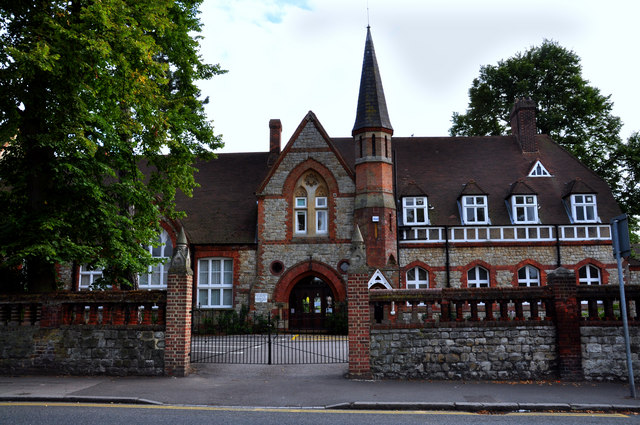Yes
Should grammar schools be exterminated or expanded?
EXTERMINATE!
When I’m elected Prime Minister, on the biggest landslide result the nation has ever seen in the year 2040, the first policy me and my Education Secretary will pursue will be to abolish grammar schools.
Grammar schools are, currently, havens for the middle-classes, the majority of which are situated in the most prosperous region of the UK.
In the South East of England, grammar schools are thriving, but they are thriving in a climate of a broken education system inside a deeply unequal society.
They’re not thriving because they’re any real symbol of social mobility, not that they arguably ever were in reality. If anything, they’re very British symbols of privilege and inequality.
There is little wonder why, therefore, the government’s announcement to allow the expansion of grammar schools for the first time in fifty years was met by such cheers from the Conservative right, UKIP and the Mail on Sunday’s Peter Hitchens.
Kent might be all sunshine and lollipops, but at Teeside where the Redcar steel factory recently closed, things aren’t so sunny or sweet. Grammar schools fail to work in a society in which children’s progress rests as much on the result of a postcode lottery and private tuition than talent and hard work.
The Conservative government’s right-to-buy programme has made us all homeowners, it has led to the owner of a bus company in Oxford considering the building of a dormitory because the city is too expensive for his workers to live in, and commuting is tough in a country with the highest public-transport fares in Europe.
Universities have now essentially been detached from the state, beholden to the charity of donors. Social mobility is well and truly off the menu, and expanding grammar schools would likely further exacerbate the startling divide between rich and poor.
Axing the esteemed 11+, which still enshrines grammar schools, would be an important step in removing parental influence upon the life choices of children who become young people who then become fully-grown adults, citizens and members of our working population. Kids, in the words of Fleetwood Mac, you need to ‘Go your own way’.
Alan Bennett, the famous playwright who’s bucked the trend of humans becoming more right wing as they get older, last year criticised selective schools despite the fact he and many of his generational brethren from working-class and lower middle-class backgrounds, like David Attenborough, Alan Johnson and John Lennon, benefited from being curious and clever when they passed the 11+ in the 1940s and 1950s.
When I’m Prime Minister, on the biggest landslide result the nation has ever seen in the year 2040, I would only abolish grammar schools as a short-term measure, and you might be surprised to learn that me and my Education Secretary would restore grammar schools, and revive a tripartite system of selection the Conservative politician R.A. Butler imagined in the 1944 Education Act.
Gone are the days the Tories could occasionally stand up for social mobility: in that act, Butler legislated for free school milk. Less than 30 years later, Harold Wilson and Margaret Thatcher snatched the milk away.
However, Labour’s radical 1945 government respected the act, allowing the flourishing of grammar schools well into the 1970s when a certain Shirley Williams started arguing for a mixed comprehensive school system for all.
But, we’ve learned so much from that change. First, the 11+ is – as The Specials sang – ‘Too Much, Too Young’. I believe 14 or 15 would be a more appropriate age for entrance exams for grammar and technical colleges.
Secondly, Britain never did build technical colleges to complete the tripartite system. As a result, Britain has to deal with the legacy of the much-maligned secondary-modern, the dumping ground for children who couldn’t quite pass the 11+, a test in the infancy of which questions were worded in the kind of language that would’ve made Barbara from The Good Life foam at the mouth.
If as Prime Minister (and yes, I know there might be many doubting Thomas’s among you, but rest assured, I might make them bold but I rarely make wrong predictions) I can create the conditions for a tripartite system to flourish, I would press ahead with grammar schools.
Germany has created a true economic powerhouse, a country with a versatile skills base, and with a higher birth rate would be leading the world like China. But Britain is not Germany, where so many rent and enjoy a social democracy, so I’m afraid, any right-minded politician would abolish grammar schools, immediately. Exterminate!
Paul Millar
No
In the post-war period we have, as a country, come to a general understanding about what we believe equality to be.
We want a system where people are allowed and encouraged to pursue their own interests and wealth, but where the family you are born into is not extensively prejudicial against your ability to do; we want to make society collectively richer, through pursuing the principle of equality of opportunity. Grammar schools are the best engine to drive this.
I was lucky enough to be born into a family with sufficient resources to send me to private school for my primary years, but when it came to secondary school I was adamant, and my parents agreed: I should go to the local grammar school.
After a lot of work, I passed the 11+ and arrived at Torquay Boys’ Grammar School in September 2004. The first term passed in a flash, and it was probably not until my second year that I noticed the demographic of the other boys in my year.
Whilst there were plenty of the middle-class children that the opponents of grammar schools love to gesticulate toward, as evidence that grammar schools somehow serve only the middle class, there were an equal number of students from much poorer backgrounds.
Many of my peers were from families poor enough that they received free school meals – and an even greater number were the first in their family to go to university, and I believe the strongest anecdotal evidence in favour of the grammar school system is in the universities they went to.
I am proud to be at Sussex – a top-20 university- but I’ve been outstripped by many from my school who, despite starting with a significant disadvantage, are now alumni of Oxford and Cambridge.
The opponents of the grammar school system are the usual whiners, who cut their nose off to spite their face, in demanding that the greatest tool of social mobility this country has seen is banned, simply because it is imperfect.
Yes, grammar schools fail a small number of students, but they reward a far greater number; the comprehensive system that has been implemented in place of grammar schools might ensure equality among poorer students – but only by failing them all equally.
Children born to rich parents needn’t worry – they can rely on an extensive network of private schools to maximise their potential, while their less fortunate – but often equally gifted – counterparts see their academic ability frittered away, in schools that fail to challenge them.
Grammar schools create environments in which gifted children from all backgrounds can be educated together, and they are the most realistic response to the obvious inequality perpetuated by private schools.
Doubtless my opposition in this debate will either state clearly – or secretly believe – that all private schools should be abolished, instead of new grammar schools created.
This is counterproductive, and fails to recognise that the point of a system that promotes equality and social justice should be to endeavour to make society collectively richer, rather than enforce uniform poverty.
Instead of kicking those at the top of the ladder down, we should be trying to pull those at the bottom up. By creating schools where the brightest children from the poorest background can receive an education on par with that available in the private sector, we can achieve this.
In our pursuit of equality, we must continually ask ourselves what purpose it serves; I believe it should be to allow every child to expect an outcome in life that matches their ability. A system devoid of grammar schools ensures that it is only the richest children who can expect this.
Disallowing a network of selective grammar schools is akin to lining all children up on the Brighton Pier, allowing the richest 7% to buy life rings, using concrete to clamp the feet of the other 93%, before throwing them all in the sea, and claiming you created equality because you used an equal amount of cement.
A society that does not allow the most gifted students from the poorest backgrounds to make the most of their potential is not equal, it is not fair, and it must end.
Will Saunders
Image: Brian Chadwick



